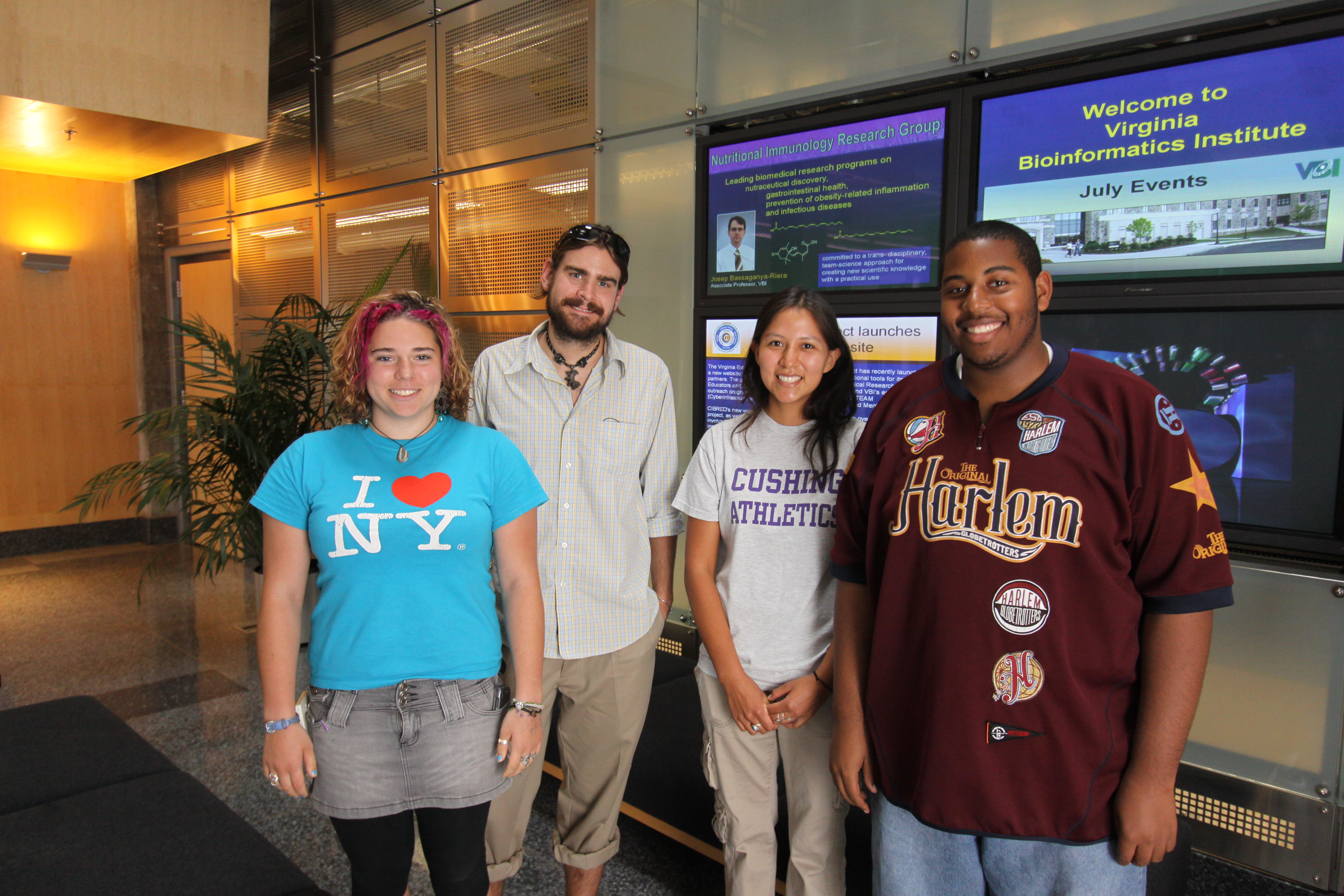Research funded by Recovery Act benefits local economy, builds nation's capacity for innovation

As of July 2009, Virginia Tech researchers have received 18 grants through the American Recovery and Reinvestment Act (ARRA), totaling $6.763 million, announced Robert Walters, vice president for research.
Project topics range from research experiences for undergraduates to the development of advanced materials and studies of disease-causing mosquitoes. Fifteen of the grants are funded by the National Science Foundation and three are National Institutes of Health grants.
The economic stimulus aspect of the grants takes the form of providing more than 50 people with summer-time, part-time, or full-time employment. The support means opportunities for students to pursue their studies. A number of postdoctoral researchers are also being employed. "The students and staff live in the local community and spend their wages locally, so their jobs benefit the local economy," said Roderick Hall, associate vice president for research.
The research experience for undergraduates (REU) grants offer summer research opportunities to students from across the nation. "These programs contribute to workforce development in cutting-edge emerging technologies," said Beth Tranter, chief of staff with Virginia Tech's Office for Research.
The Virginia Tech REUs funded by the ARRA are "Microbiology in the Post Genome Era," offered by Biswarup Mukhopadhyay, an assistant professor at the Virginia Bioinformatics Institute; and "Cognitive Communications," offered by Tamal Bose, professor of electrical and computer engineering and associate director of Wireless@VT, and Tonya Smith-Jackson, associate professor in industrial and systems engineering.
The REU programs help undergraduates develop research skills and teach them to assimilate the latest research, assess their own knowledge, present results, prepare reports and publications, and understand the methods for translating research to practice. REUs recruit a high percentage of the students from underrepresented groups and those at institutions where opportunities for research are limited, and offers sessions on pursuing graduate studies. The program provides a stipend, travel to and from the site, and room and board.
Other National Science Foundation-funded projects include research by Richard Turner, professor of chemistry and director, Macromolecules and Interfaces Institute, to create new kinds of polymers that could be used to produce materials for hydrogen storage or rigid polymers with a charge; and a study by Peter Vikesland, associate professor of civil and environmental engineering, on the extent to which biologically compatible nanomaterials designed for pharmaceuticals could potentially reach municipal wastewater and accumulate in aquatic organisms.
National Institutes of Health-funded work includes development of three-dimensional liver mimics comprised of cells found in livers by Padma Rajagopalan, assistant professor of chemical engineering. The mimics would allow study of the processes that occur during the liver during detoxification and would have immediate application for toxicity evaluations and testing of pharmaceuticals and drugs.
Some funding agencies were able to make awards quickly because they looked for meritorious proposals that they had not previously been able to fund due to the federal budget restrictions, said Tranter, whose duties include making sure contract and grant opportunities are distributed to faculty members and who is managing the response to the ARRA.
"Virginia Tech researchers have been very active in pursing research funding – having submitted 3,100 proposals during fiscal year 2009 (ending June 30)," said Walters.
"ARRA funding at academic institutions is not aimed at 'shovel readiness' but rather at capacity building," said Tranter. She pointed to a 2007 study by the National Academies, Rising Above the Gathering Storm: Energizing and Employing America for a Brighter Economic Future , that states that the vitality of the U.S. economy is "derived in large part from the productivity of well-trained people and the steady stream of scientific and technical innovations they produce." The study points to challenges from "leading-edge scientific and engineering work being accomplished in many parts of the world."
Future ARRA-funded National Science Foundation awards will fund purchases of scientific equipment and renovation of research space, Tranter said.
Read the ARRA-funded research project list through the first of July.




